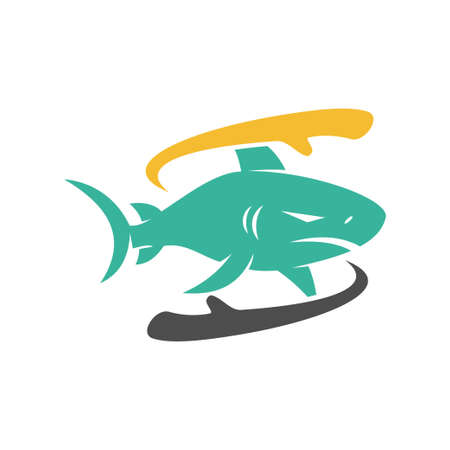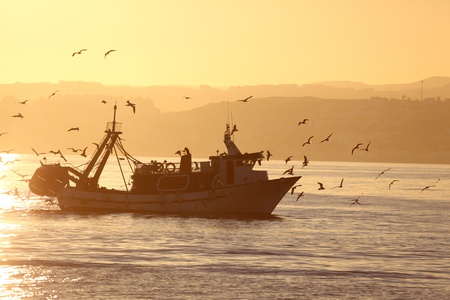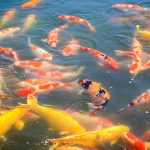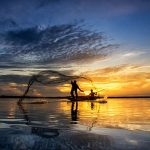1. Introduction to Saltwater Fishing in the Golden Isles
Georgia’s Golden Isles are a true gem for saltwater anglers, offering a mix of scenic beauty and rich fishing opportunities. Located along the southeastern coast of Georgia, this region includes five unique coastal destinations: Brunswick, St. Simons Island, Sea Island, Jekyll Island, and Little St. Simons Island. Each area brings its own charm and access to diverse marine habitats, making it a top spot for both beginner and seasoned saltwater fishermen.
The Golden Isles are known for their dynamic coastal environments. When you cast your line here, youre not just fishing one type of water—you’ll experience a variety of saltwater settings, including:
- Tidal Creeks: These winding waterways fill and drain with the tides, attracting redfish, flounder, and speckled trout.
- Estuaries: Where freshwater meets the sea, estuaries provide rich feeding grounds for a wide range of fish species.
- Open Ocean: For those heading offshore, the Atlantic offers chances to catch king mackerel, cobia, tarpon, and even snapper and grouper on reef structures.
The table below gives a quick overview of each location within the Golden Isles and the types of fishing environments you can expect to find:
| Location | Main Fishing Environments | Common Target Species |
|---|---|---|
| Brunswick | Tidal rivers, estuaries | Redfish, speckled trout, flounder |
| St. Simons Island | Piers, inshore creeks, offshore reefs | Sheepshead, king mackerel, tarpon |
| Sea Island | Private beaches, nearshore waters | Spotted sea trout, whiting |
| Jekyll Island | Sandy beaches, tidal flats | Pompano, black drum, sharks (seasonal) |
| Little St. Simons Island | Undisturbed marshes and creeks | Redfish, flounder, snook (rare but possible) |
No matter where you drop a line in the Golden Isles, youll find that each spot has something special to offer. Whether you prefer casting from a pier at sunrise or heading out into deeper waters on a charter boat, Georgia’s coast gives you plenty of options to explore saltwater fishing at its finest.
2. Popular Game Fish and Seasonal Patterns
The Golden Isles of Georgia offer saltwater anglers a wide range of exciting game fish throughout the year. Whether youre casting from a pier, kayak, or boat, knowing what species are biting and when can make all the difference in planning a successful trip. Here’s a guide to the most sought-after saltwater fish in the region and their seasonal availability.
Top Target Species
From hard-fighting redfish to acrobatic tarpon, the coastal waters around St. Simons Island, Jekyll Island, and Brunswick are home to an impressive variety of game fish. Here are some local favorites:
- Redfish (Red Drum): A year-round staple in the marshes and estuaries, redfish are especially active during the fall when larger “bull reds” move into nearshore waters.
- Speckled Trout (Spotted Seatrout): Best caught in cooler months, especially late fall through early spring, these fish thrive in grassy flats and creek mouths.
- Flounder: Known for their ambush tactics and tasty filets, flounder are more commonly caught during warmer months from spring through early fall.
- Tarpon: The “Silver King” shows up in summer, typically June through September. These powerful fish are found near beaches, sounds, and river mouths.
- Sharks: Various shark species frequent Georgia’s coastal waters from late spring through early fall. Blacktip, bonnethead, and spinner sharks are common targets for both sport and catch-and-release fishing.
Seasonal Fishing Calendar
To help you plan your fishing trips around peak activity times, here’s a quick overview of seasonal patterns for popular species:
| Species | Best Months to Target |
|---|---|
| Redfish | September – November (peak); available year-round |
| Speckled Trout | October – March |
| Flounder | April – October |
| Tarpon | June – September |
| Sharks | May – September |
Migration & Habitat Tips
The movement of these species is often tied to water temperature, tides, and baitfish migration. For example:
- Redfish tend to school up in shallow waters during cooler months and can be found tailing on flood tides in summer.
- Speckled trout prefer cooler water temps and often move into deeper holes or upstream creeks during winter.
- Tarpon follow schools of menhaden and mullet along the coast—keep an eye out for baitfish activity when targeting them.
The more you understand these patterns, the better your chances of finding fish. Local tackle shops and guides can also provide current info on what’s biting where.

3. Gear and Tackle Essentials
When it comes to fishing in Georgia’s Golden Isles, having the right gear can make or break your day on the water. Whether youre targeting redfish inshore, chasing Spanish mackerel nearshore, or heading offshore for kingfish and snapper, each zone requires a different approach. Heres a simple breakdown of what youll need for inshore, nearshore, and offshore fishing in the area.
Inshore Fishing
Inshore waters around the Golden Isles are perfect for redfish, speckled trout, and flounder. These areas include tidal creeks, marshes, and estuaries where lighter tackle is key.
Recommended Setup:
| Gear | Details |
|---|---|
| Rod | 66″ to 7 medium-light spinning rod |
| Reel | 2500 to 3000 size spinning reel with smooth drag |
| Main Line | 10–15 lb braided line with 20 lb fluorocarbon leader |
| Bait | Live shrimp, mud minnows, soft plastic paddle tails, topwater plugs |
| Tackle | Popping corks, jig heads (1/8–1/4 oz), circle hooks (size 1–2/0) |
Nearshore Fishing
Just a few miles off the beaches of St. Simons Island and Jekyll Island, you’ll find reefs and wrecks holding cobia, Spanish mackerel, and sea bass. A step up in gear will help handle stronger fish and deeper water.
Recommended Setup:
| Gear | Details |
|---|---|
| Rod | 7 medium-heavy spinning or conventional rod |
| Reel | 4000–6000 size spinning reel or low-profile baitcaster |
| Main Line | 20–30 lb braided line with 30–40 lb leader |
| Bait | Cigar minnows, cut squid, bucktail jigs, metal spoons |
| Tackle | Carolina rigs, weighted jig heads (1/2–1 oz), wire leaders for toothy fish |
Offshore Fishing
If youre venturing 20+ miles out into deeper Atlantic waters, be ready for bigger species like king mackerel, mahi-mahi, grouper, and snapper. Heavy-duty gear is a must here.
Recommended Setup:
| Gear | Details |
|---|---|
| Rod | 66″ to 7 heavy-action conventional rod rated for 50–80 lb line |
| Reel | Larger conventional reel with high line capacity (e.g., Penn Squall or Shimano Torium) |
| Main Line | 50–80 lb braid with 60–100 lb mono or fluorocarbon leader depending on target species |
| Bait | Live blue runners, cut mullet, trolling skirts with ballyhoo, deep-diving plugs |
| Tackle | Kite rigs, downriggers for trolling, circle hooks (5/0–8/0), heavy sinkers for bottom fishing (up to 16 oz) |
The Golden Isles offer diverse fishing opportunities that cater to anglers of all skill levels. Matching your gear to the environment and target species will not only improve your success but also ensure an enjoyable day out on the water.
4. Top Fishing Spots and Local Charters
Georgia’s Golden Isles are a saltwater angler’s dream, with a mix of shore-based spots and offshore hotspots that cater to all experience levels. Whether youre casting from a pier or heading out on a guided boat trip, there’s something here for everyone.
Popular Fishing Locations
If you’re planning to explore the Golden Isles on your own, these well-loved fishing spots offer easy access and great opportunities to reel in redfish, trout, flounder, and more.
| Location | Type of Fishing | Target Species | Best Time to Fish |
|---|---|---|---|
| St. Simons Pier | Pier fishing | Spotted seatrout, redfish, sheepshead | Spring through fall |
| Jekyll Island Beach | Surf fishing | Pompano, whiting, sharks | Summer and early fall |
| Offshore Reefs (e.g., Artificial Reef “SFC”) | Boat/offshore fishing | Snapper, grouper, king mackerel | Late spring through early winter |
Booking Local Fishing Charters
If you’re looking for expert guidance or hoping to venture offshore, booking a local charter is the way to go. Charter captains know the waters inside and out and can help maximize your chances of landing something big.
Tips for Choosing a Charter:
- Check Reviews: Look up online reviews on sites like Google or TripAdvisor to find reputable guides.
- Select Your Trip Type: Choose between inshore, nearshore, or offshore trips based on what you want to catch and how long you want to be out.
- Ask About Gear: Most charters provide rods, reels, bait, and even fishing licenses—but it’s good to double-check.
What to Expect on a Guided Trip:
- A friendly captain who shares local knowledge and helps with baiting hooks and handling fish.
- A cooler onboard for storing your catch (some charters will clean it for you too).
- A chance to learn new techniques—whether its bottom fishing over reefs or trolling for pelagic species.
The Golden Isles offer plenty of ways to enjoy saltwater fishing, whether youre standing on a sandy beach or cruising miles off the coast. With so many great spots and professional charters available, it’s easy to plan a memorable day on the water.
5. Licensing, Regulations, and Conservation Practices
If youre planning to fish the saltwater shores of Georgia’s Golden Isles—whether off a pier, on a boat, or from the beach—it’s important to follow local laws and respect the environment. Here’s what you need to know to stay legal and fish responsibly.
Georgia Saltwater Fishing License Requirements
To fish legally in saltwater around the Golden Isles—including areas like St. Simons Island, Jekyll Island, and Cumberland Island—you’ll need a valid Georgia fishing license plus a free Saltwater Information Program (SIP) permit.
Who Needs a License?
- Residents aged 16–64
- Non-residents aged 16 and older
Where to Get Your License
You can purchase your license online through the Go Outdoors Georgia website, via phone, or at sporting goods stores throughout the state.
Size and Bag Limits
Georgia enforces specific rules for how many fish you can keep and what size they must be. These rules help maintain healthy populations in local waters.
Common Saltwater Species Limits
| Species | Minimum Size | Daily Bag Limit |
|---|---|---|
| Spotted Sea Trout | 14 inches | 15 per person |
| Red Drum (Redfish) | 14–23 inches (slot limit) | 5 per person |
| Flounder | 12 inches | 15 per person |
| Sheepshead | 10 inches | 15 per person |
*Regulations may change seasonally. Always check the latest updates on the Georgia Department of Natural Resources website before heading out.*
Conservation-Minded Practices for Sustainable Fishing
Caring for Coastal Ecosystems
The Golden Isles are home to delicate marshes and estuaries that serve as nurseries for many marine species. By adopting sustainable fishing habits, anglers can help preserve these vital habitats for generations to come.
Catch-and-Release Best Practices
- Use circle hooks: They reduce injury and increase survival rates for released fish.
- Avoid overhandling: Wet your hands before touching a fish to protect its slime coating.
- Minimize air exposure: Keep the fish in water as much as possible during release.
- Revive if needed: Gently move the fish back and forth in the water until it swims away strongly.
Tread Lightly Around Sensitive Areas
- Avoid anchoring on seagrass beds or oyster reefs.
- Dispose of fishing line, bait containers, and trash properly—never leave them behind.
- If using live bait, make sure its native to Georgia waters to prevent introducing invasive species.
The Golden Isles offer some of the best saltwater fishing in the Southeast—but with that comes responsibility. By staying informed about licenses, limits, and conservation practices, every angler can do their part to keep these coastal waters thriving.
6. Tips from Local Anglers and Final Thoughts
Fishing in Georgia’s Golden Isles is more than just casting a line — it’s about connecting with nature, understanding the local rhythms, and respecting the community. We asked a few seasoned local anglers for their best advice, and here’s what they had to say.
Local Etiquette on the Water
Southern hospitality extends to the water, and following a few unspoken rules goes a long way:
- Give space: Don’t crowd other boats or anglers. If someone’s already fishing in a spot, move along.
- Be polite: A friendly wave or quick chat can make your day better — locals appreciate kindness.
- Clean up: Always pack out your trash and avoid leaving behind fishing lines or bait containers.
Weather Considerations
The Golden Isles have a humid subtropical climate, which means weather can shift quickly. Here are a few tips:
- Check forecasts: Use apps like NOAA Weather Radar or Windy before heading out.
- Tides matter: Tidal movement affects fish activity — plan around incoming or outgoing tides for best results.
- Storms roll in fast: Afternoon thunderstorms are common in summer. If you see dark clouds forming, head back to shore.
Best Times of Day to Fish
Certain times yield better chances depending on your target species. Heres a handy guide:
| Time of Day | Best For | Why It Works |
|---|---|---|
| Early Morning (5 AM – 8 AM) | Speckled Trout, Redfish | Cooler temps and low light get fish moving nearshore |
| Late Afternoon (4 PM – Sunset) | Flounder, Tarpon | Tidal changes plus lower sun angle improve bite rates |
| NIGHT (After 9 PM) | Sharks, Whiting | Nocturnal feeders become active; less boat traffic |
Respecting the Environment
The Golden Isles offer rich biodiversity — from salt marshes to barrier islands. Help preserve this beauty by practicing responsible fishing:
- Follow size and bag limits: Check Georgia DNR regulations before each trip.
- Avoid sensitive areas: Don’t anchor on oyster beds or grass flats.
- Catch and release responsibly: Use circle hooks and minimize handling when releasing fish.
A Place Worth Exploring Again and Again
No matter your skill level, fishing in Georgia’s Golden Isles is an experience full of learning, patience, and surprise. Whether youre reeling in your first redfish or watching dolphins glide past your boat at sunrise, remember to slow down, take it all in, and leave it better than you found it.


